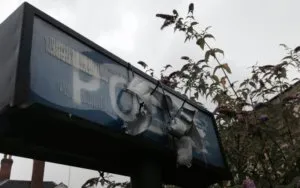
Last week, the Independent Police Complaints Commission (IPCC) detailed how a disabled man died following a series of epileptic seizures while held in custody.
Billy Salton had two seizures at Cheadle Heath custody suite, where he was held for 33 hours. After a third seizure in a magistrates’ court cell, the 19-year-old was finally taken to hospital, where he died three days later, on 9 July 2012.
The IPCC found there had been a “sloppy” approach to his care, that neither of the seizures at Cheadle Heath had been spotted by custody staff – even though the cell was covered by CCTV – and that there had been confusion and delay in bringing Salton his epilepsy medication.
But the watchdog concluded that there was insufficient evidence to suggest that any individual officer or member of police staff had breached their professional standards.
It was the fourth time in three years that IPCC has criticised Greater Manchester Police (GMP) over its treatment of disabled people, but the watchdog declined to comment this week on the string of cases.
In March 2011, GMP was heavily criticised by IPCC after failing to treat a disabled man’s “years of torment” at the hands of local youths as disability hate crime.
David Askew, who had learning difficulties, collapsed and died in March 2010 soon after police received reports that youths had again been harassing him outside his home.
IPCC found that between 2004 and 2010, Askew and his family reported 88 incidents of targeted harassment and hostility, threats and abuse.
Two months later, IPCC questioned tactics used by GMP officers who had been present when a 50,000-volt Taser was used on a man who had just had an epileptic seizure.
The IPCC concluded that – although there were no police guidelines that prevented the use of a Taser against someone who has had a seizure – “giving commands and attempting compliance through pain to a person who was already known to be unresponsive” were “questionable” police tactics.
And in November 2011, the force was criticised by the IPCC for ignoring two phone calls expressing serious concerns about the health of a disabled man, who was later found dead.
Greater Manchester Police insisted this week that it had “worked really hard to improve the way in which it supports and meets the needs of disabled people”.
Clare Light, GMP’s head of neighbourhoods and equality, said: “There has been significant learning generated from some of the high-profile incidents in Greater Manchester Police and other areas, and this has fed into the on-going work being done by our equality team to work with [disability] organisations and improve the way the force responds to the needs of disabled people when reporting incidents or coming into contact with us.”
She said that every GMP officer who responds to a report of a crime now has to have undergone two training packages on how to engage with diverse communities.
Light said the force now works with the Crown Prosecution Service to ensure that disability is taken into account throughout a court case and can be used as an aggravating factor by judges when sentencing, while disability hate crime “remains a priority”.
GMP holds events designed to help disabled people understand how to report disability hate crime, and has worked with partners to develop hate crime reporting centres and to design information in easy-read format for people with learning difficulties.
She added: “Custody is another area where we have made significant changes. These include a new risk assessment and a computerised system that enables custody officers and medical professionals to better share information between themselves.”
Light said the force was engaged in a “continuous process of change and improvement”, but was “by no means complacent”.
14 August 2014

 Ministers are considering further extension to disability hate crime laws, after pledge on ‘aggravated’ offences
Ministers are considering further extension to disability hate crime laws, after pledge on ‘aggravated’ offences Call for hate crime law reform, as broadcaster says young people too sick to work are ‘parasites’
Call for hate crime law reform, as broadcaster says young people too sick to work are ‘parasites’